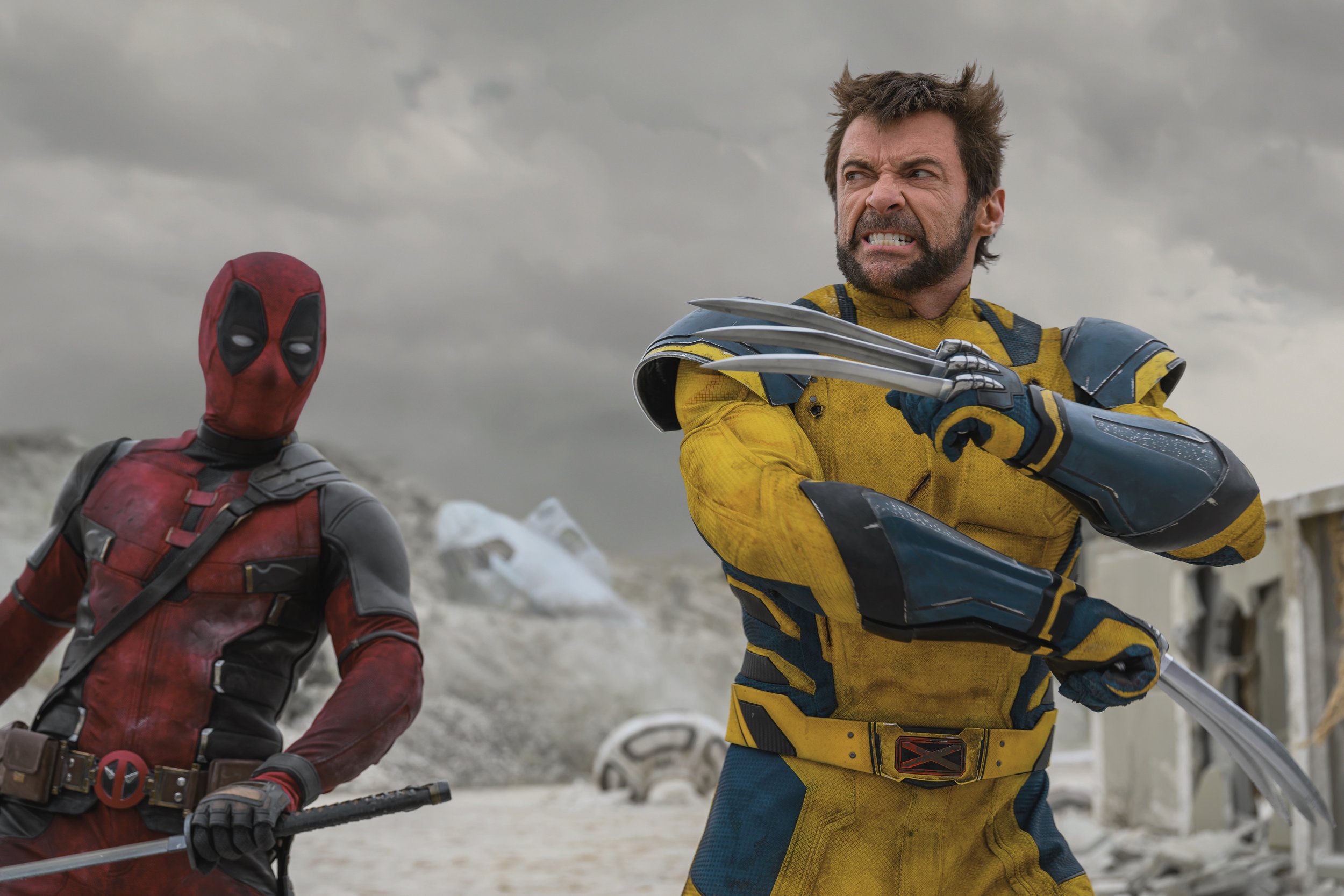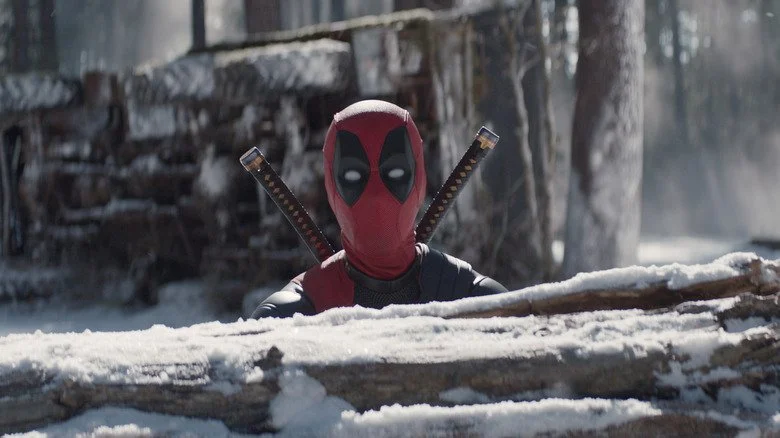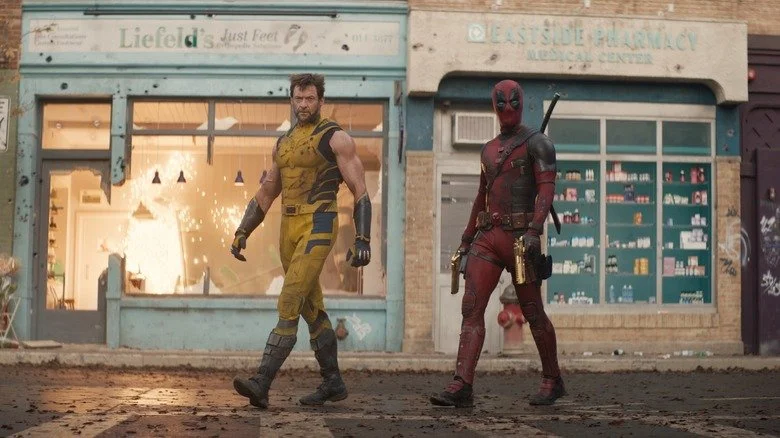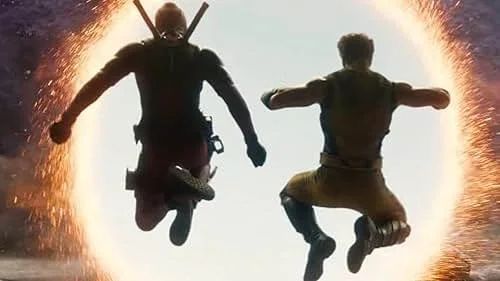Why I hated Deadpool & Wolverine (2024)
Staff Writer Jeffrey Chay details his surprising trip into the void (no pun intended) of Deadpool & Wolverine (2024).
I did not initially plan on watching Deadpool & Wolverine (2024). While I’d heard good things about it, I was put off by my dislike of most of Ryan Reynolds’ previous work and my general disinterest in the Marvel Cinematic Universe. It had thus taken much convincing from friends for me to give it a chance to watch it in the cinema. When the film opened with a predictably edgy dance sequence featuring Deadpool desecrating the grave of his would-be buddy Wolverine (Hugh Jackman), I knew that I was in for a rough ride.
The film follows Deadpool on a multiverse-hopping adventure that leans into an increasingly saturated concept in the superhero genre. Between Spider-Man: No Way Home (2021), Doctor Strange in the Multiverse of Madness (2022), Spider-Man: Across the Spider-Verse (2023), and now Deadpool & Wolverine, it has become a yearly affair to send superheroes on far-flung quests with their alternate selves. As such, when Deadpool seeks a replacement for Wolverine, whose death as an ‘anchor being’ has created an existential threat to their universe, the reveal that Deadpool somehow manages to find the ‘worst’ version of Wolverine, a self-loathing, drunken oaf of a superhero, no longer feels novel and fresh. In their quest for redemption, the duo cross paths with a slew of thorny characters, even landing at some point in a dystopian realm creatively known as ‘the Void’, before eventually defeating the big bad and living happily ever after forever—or at least, until the time calls for Deadpool 4.
To preface, I don't think Deadpool & Wolverine is without merit. There were some fleeting moments that I thought were actually quite fun, such as the battle against the army of Deadpool variants, as well as the climactic scene featuring a needle-drop of Madonna's 'Like a Prayer'. Moreover, to prove I'm not a complete killjoy, I can say that I did laugh a few times, mostly at Matthew Macfadyen's bumbling portrayal of the villainous Mr. Paradox. Even so, my personal high point was the scene where Wolverine finally lost his patience and embarked on the mother of all foul-mouthed tirades against Deadpool, which I found quite cathartic as it effectively gave voice to my thoughts on the movie as a whole.
So, what is it about this immoderately self-referential, potty-mouthed, faux-anarchistic, multiverse-hopping heap of balderdash that draws my ire? Is it because, just like he has in arguably every role he's taken up since Deadpool (2016), Ryan Reynolds insists on basing his performance along the precarious line between ‘lovable’ and ‘punchable’? Might it be the fact that the film brazenly eschews the need for a compelling narrative throughline in favour of a head-scratching game of “who’s who”, jam-packed with sundry cameos from franchise has-beens and mutant rejects? Or could it instead be the way the film’s entire 127-minute runtime feels like one long, unending gag at the audience’s expense, as if the filmmakers are making fun of the viewer for being dumb enough to enjoy the schlock they are being served?
In a word, my main issue with Deadpool & Wolverine is its insincerity. It is a film lacking in earnestness and emotional weight because it is too preoccupied with subverting the audience’s expectations for cheap laughs. This is made worse by its over-dependence on intertextuality, as the audience is expected to already be familiar with the story’s lore, with minimal effort being taken to humanise its characters beyond caricatured portrayals such as Deadpool's one-dimensional characterisation as a sarcastically self-aware but ‘lovable’ rogue.
I understand that for many fans, this irreverence is part and parcel of why they love Deadpool. The franchise is built around subverting superhero movie conventions, poking fun at both its own genre and the audience’s expectations. The lack of emotional depth or earnestness could be seen as intentional—a deliberate mockery of the melodrama that saturates the superhero genre. The use of self-reflexivity in humour, including Deadpool’s incessant fourth-wall breaking, is argued to be a central element of the character, with fans viewing it as a refreshing break from traditional, formulaic superhero storytelling. However, subverting conventions and engaging in meta-humour is, in my opinion, only entertaining in moderation; over-relying on these tactics tends to undermine the story’s overall impact. The film’s flippant tone may indeed be part of the Deadpool formula, but at some point, these elements become tiresome and repetitive, offering little substance to keep the audience engaged. A film that consistently subverts expectations for the sake of humour runs the risk of becoming predictable in its unpredictability, with the constant barrage of jokes coming at the expense of meaningful character development or narrative cohesion.
Furthermore, for an action-comedy film hailed as an ‘irreverent romp’ that is ‘frequently hilarious’, I simply don’t find Deadpool & Wolverine very funny. It's not that I think breaking the fourth wall is inherently unfunny, but as stated before, the film’s sheer over-reliance on that form of meta-humour ultimately renders it predictable and tiresome. To make matters worse, unlike true satire or dark humour, Deadpool’s incessant edginess rarely, if ever, has the necessary bite to justify its overuse. Instead, he reels off surface-level punchlines, almost akin to ‘name-drops’ in their laziness, safe in the knowledge that the mere acknowledgement of the real world by a fictional character is apparently sufficient to elicit howls of laughter from today's movie-going public. Even if it happens for the hundredth time.
For instance, the film opts to touch on the oversaturation of superhero movies largely caused by corporate greed by simply having its protagonist mention the words “Fox” and “Disney” (wink wink) out loud. Meanwhile, upon landing in the Void and noting its extreme similarity to the hellscape setting of the Mad Max film series, Deadpool snidely remarks that it looks 'a bit Mad Max-y', thereby effectively bypassing any possible accusations of it being a rip-off of Mad Max, despite being a rip-off of Mad Max. Also mentioned in a trademark Deadpool jab is Marvel Studios President Kevin Feige, who no doubt had the joke personally approved, and would shortly go on to announce his company's decision to recast formerly beloved Iron Man actor Robert Downey Jr. as Doctor Doom in yet another ill-conceived attempt to prolong the life of their dying cash-cow.
Repeatedly breaking the fourth wall or mocking the genre is only compelling if there’s something deeper beneath it—be it emotional stakes, compelling character arcs, or a well-structured plot. In Deadpool & Wolverine, the focus on being edgy for the sake of it leaves the film feeling hollow. It is hence important to recognise that even satire and parody benefit from moments of sincerity. The best Marvel films successfully blend irreverence with sincerity to allow the audience to connect with the characters.
For instance, Guardians of the Galaxy (2014) is a riotous space adventure brimming with quippy humour, but grounds its antics with heartfelt moments, such as Peter Quill’s nostalgic attachment to his mother’s mixtape or Rocket Raccoon’s struggle with self-worth beneath his sarcastic exterior. These emotional beats give the film a sense of humanity even amid the cosmic chaos. In contrast, Deadpool & Wolverine seems to abandon any attempt at emotional investment, leaving the entire experience feeling superficial. If everything is treated as a joke, nothing feels significant; and the stakes—both emotional and narrative—are rendered meaningless.
The film also leans heavily into utilising character cameos from across Marvel's many film franchises. Fans of Deadpool & Wolverine might see these cameos as enjoyable nods to the larger Marvel universe, almost like a form of anticipatory world-building. It's a common trope in modern superhero films to incorporate fan service, and in this case, the movie is fully aware of its indulgence. For those long-time fans who have been following the franchise or are familiar with the lore, these moments act as rewards. The film never takes itself too seriously, and the audience’s familiarity with these characters plays into the humour.
This reliance on fan service, like its reliance on meta-humour, also feels like a crutch. Instead of adding depth, excessive cameos distract from the story and interrupt its flow, making the film feel disjointed. For casual viewers or those unfamiliar with the wider franchise, these references can alienate and diminish the film’s ability to stand on its own merits. This is also symptomatic of a certain creative laziness; rather than developing a strong, self-contained narrative, the film stoops to reusing familiar faces to generate excitement, ultimately offering a hollow experience. Even if the movie is self-aware of its indulgence, this doesn’t make it less excessive. A film that prioritises cameos over meaningful storytelling or character development risks losing emotional depth and resonance, leaving viewers with superficial thrills instead of a compelling, cohesive narrative.
It’s clear that these films are made for a particular audience that finds comfort in their familiar rhythms and revolving door of comic book characters. And with a $1.34 billion box office gross, that is evidently not a small demographic. Even so, I can’t help but feel that mixing in narrative substance with the usual zany humour would have spared me the painful experience of having to sit there, amid a packed, zealous crowd eager to crack up at each formulaic fourth-wall-breaking quip, as I silently prayed for the sweet mercy of the end credits (nothing on God's green earth could have compelled me to stay for the post-credits scene).
TLDR: If I have the misfortune of sitting through a more obnoxious film than Deadpool & Wolverine this year, I might just end up booking myself a one-way trip to the Void.
Images in this article are being used under Fair Use guidelines as part of Singapore's Copyright Act 2021





